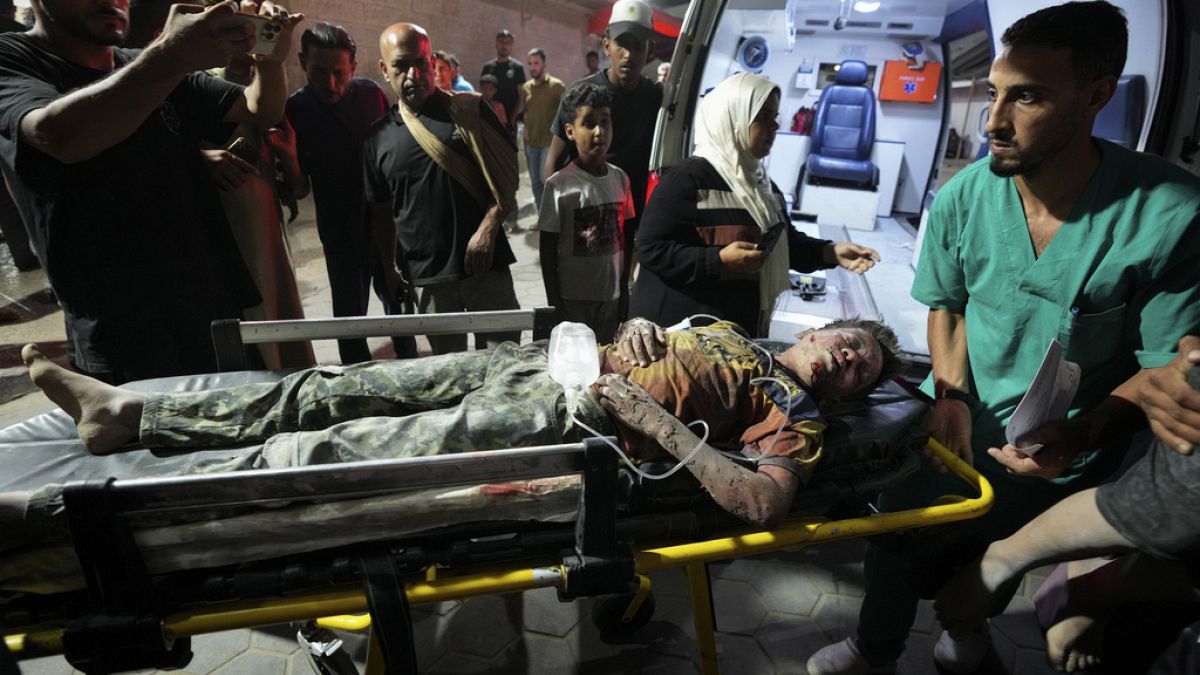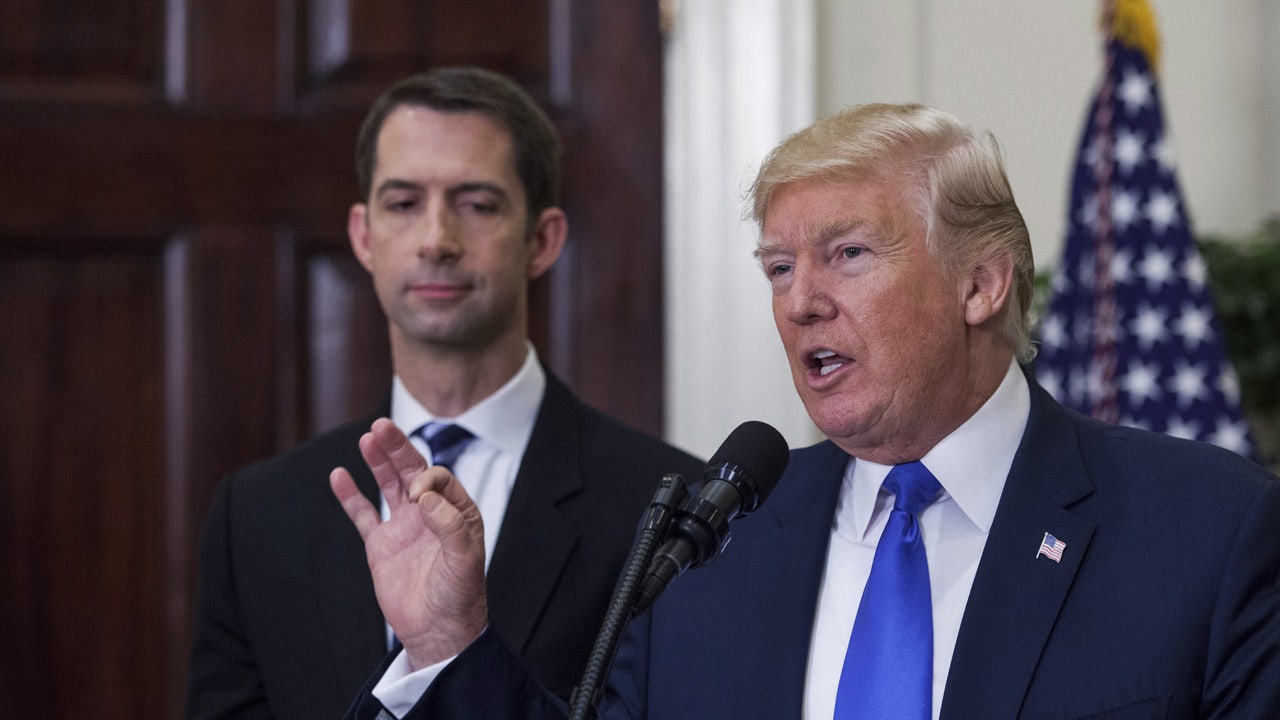World
UN team says 32 babies are among scores of critically ill patients stranded in Gaza’s main hospital
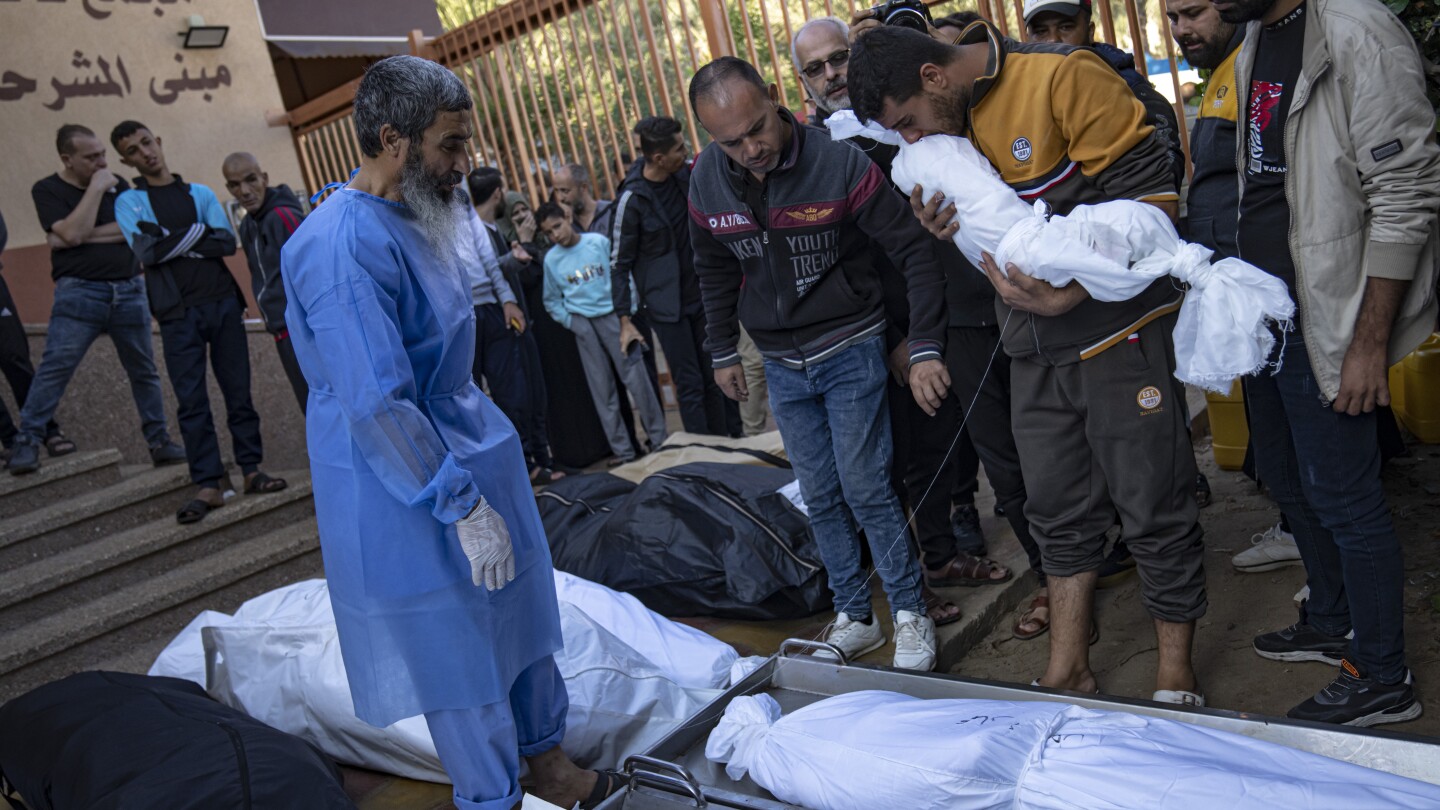
KHAN YOUNIS, Gaza Strip (AP) — A United Nations team said Sunday that 291 patients were left at Gaza’s largest hospital after Israeli troops had others evacuate. Those left included 32 babies in extremely critical condition, trauma patients with severely infected wounds, and others with spinal injuries who are unable to move.
The team was able to tour Shifa Hospital for an hour after about 2,500 displaced people, mobile patients and medical staff left the sprawling compound Saturday morning, said the World Health Organization, which led the mission. It said 25 medical staff remained, along with the patients.
“Patients and health staff with whom they spoke were terrified for their safety and health, and pleaded for evacuation,” the agency said, describing Shifa as a death zone. It said more teams will attempt to reach Shifa in coming days to try to the evacuate patients to southern Gaza, where hospitals are also overwhelmed.
Israel has long alleged that Hamas maintains a sprawling command post inside and under Shifa. It has portrayed the hospital as a key target in its war to end the militants’ rule in Gaza following their wide-ranging attack into southern Israel six weeks ago, which triggered the war.
Hamas and hospital staff deny the allegations. Israeli troops who have been based at the hospital and searching its grounds for days say they have found guns and other weapons, and showed reporters the entrance to a tunnel shaft. The AP couldn’t independently verify Israel’s findings.
Saturday’s mass departure was portrayed by Israel as voluntary, but the WHO said the military had issued evacuation orders, and some of those who left described it as a forced exodus.
“We left at gunpoint,” Mahmoud Abu Auf told The Associated Press by phone after he and his family left the crowded hospital. “Tanks and snipers were everywhere inside and outside.” He said he saw Israeli troops detain three men.
STRIKES IN THE NORTH AND SOUTH
Elsewhere in northern Gaza, dozens of people were killed in the urban Jabaliya refugee camp when what witnesses described as an Israeli airstrike hit a crowded U.N. shelter Saturday. It caused massive destruction in the camp’s Fakhoura school, said wounded survivors Ahmed Radwan and Yassin Sharif.
“The scenes were horrifying. Corpses of women and children were on the ground. Others were screaming for help,” Radwan said by phone. AP photos from a local hospital showed more than 20 bodies wrapped in bloodstained sheets.
The Israeli military, which has repeatedly called on Palestinians to leave northern Gaza, said only that its troops were active in the area “with the aim of hitting terrorists.” It rarely comments on individual strikes, saying only that it targets Hamas while trying to minimize civilian harm.
In southern Gaza, an Israeli airstrike hit a residential building near the town of Khan Younis on Saturday, killing at least 26 Palestinians, according to a doctor at the hospital where the bodies were taken.
More than 11,500 Palestinians have been killed, according to Palestinian health authorities. Another 2,700 have been reported missing, believed buried under rubble. The count does not differentiate between civilians and combatants; Israel says it has killed thousands of militants.
HOSTAGES AND AID
Around 1,200 people have been killed on the Israeli side, mainly civilians killed during Hamas’ Oct. 7 attack, in which the group also dragged some 240 captives back into Gaza. The military says 52 Israeli soldiers have been killed.
Hamas has released four hostages, Israel has rescued one, and the bodies of two hostages were found near Shifa in an area where there had been heavy fighting.
Israel, the United States and the Persian Gulf nation of Qatar, which mediates with Hamas, have been negotiating over a hostage release for weeks. On Saturday, a senior White House official suggested it would need to be completed before the entry of large amounts of desperately needed aid.
“A release of large number of hostages would result in a significant pause in fighting … and a massive surge of humanitarian relief,” Brett McGurk, the White House’s National Security Council coordinator for the Middle East, said at a conference in Bahrain.
Gaza’s main power plant shut down early in the war, and Israel has cut off electricity. That has left local authorities unable to operate water treatment plants, bakeries, hospitals and other critical infrastructure without fuel for generators, which has run low since Israel cut off all imports at the start of the war.
More than two thirds of Gaza’s population of 2.3 million have fled their homes. The U.N. agency for Palestinian refugees, known as UNRWA, is providing basic services to hundreds of thousands of people sheltering in schools and other facilities.
Over the weekend, Israel allowed UNRWA to import enough fuel to continue humanitarian operations for another couple of days, and to keep internet and telephone systems running. UNRWA had been forced to put aid operations on hold Friday during a communications blackout.
Gaza has received only 10% of its required food supplies each day in shipments from Egypt, according to the U.N., and the water system shutdown has left most of the population drinking contaminated water.
A WIDER OFFENSIVE?
Defense Minister Yoav Gallant said Saturday that Israel’s forces were expanding operations in Gaza City. “With every passing day, there are fewer places where Hamas terrorists can operate,” he said, adding that the militants would learn that in southern Gaza “in the coming days.”
His comments were the clearest indication yet that the military plans to expand its offensive to southern Gaza, where Israel had told Palestinian civilians to seek refuge. The evacuation zone is already crammed with displaced civilians, and it was not clear where they would go if the offensive moved closer.
Even as it warns of a broadening offensive, Israel remains at odds with its main ally, the United States, over what to do with Gaza should it succeed in removing Hamas from power.
Prime Minister Benjamin Netanyahu said Saturday that the Israeli military would have “full freedom” to operate within the territory after the war, indicating it would at least temporarily reoccupy the territory from which it withdrew soldiers and settlers in 2005.
In an op-ed published Saturday in The Washington Post, U.S. President Joe Biden said Gaza and the West Bank should be reunited and governed under a “revitalized Palestinian Authority” while world leaders work toward a solution that would create a Palestinian state alongside Israel.
Netanyahu’s government is strongly opposed to Palestinian statehood. The Palestinian Authority has said it would only return to govern Gaza — where Hamas routed its forces in 2007 — as part of a comprehensive two-state solution to the decades-old conflict.
___
Magdy reported from Cairo.
___
Full AP coverage at https://apnews.com/hub/israel-hamas-war.

World
Kremlin condemns NATO boss's appeal for Ukraine to use Western arms in Russia

World
Memorial Day ceremony held in Baghdad to honor US Army soldiers killed in Iranian-backed drone attack
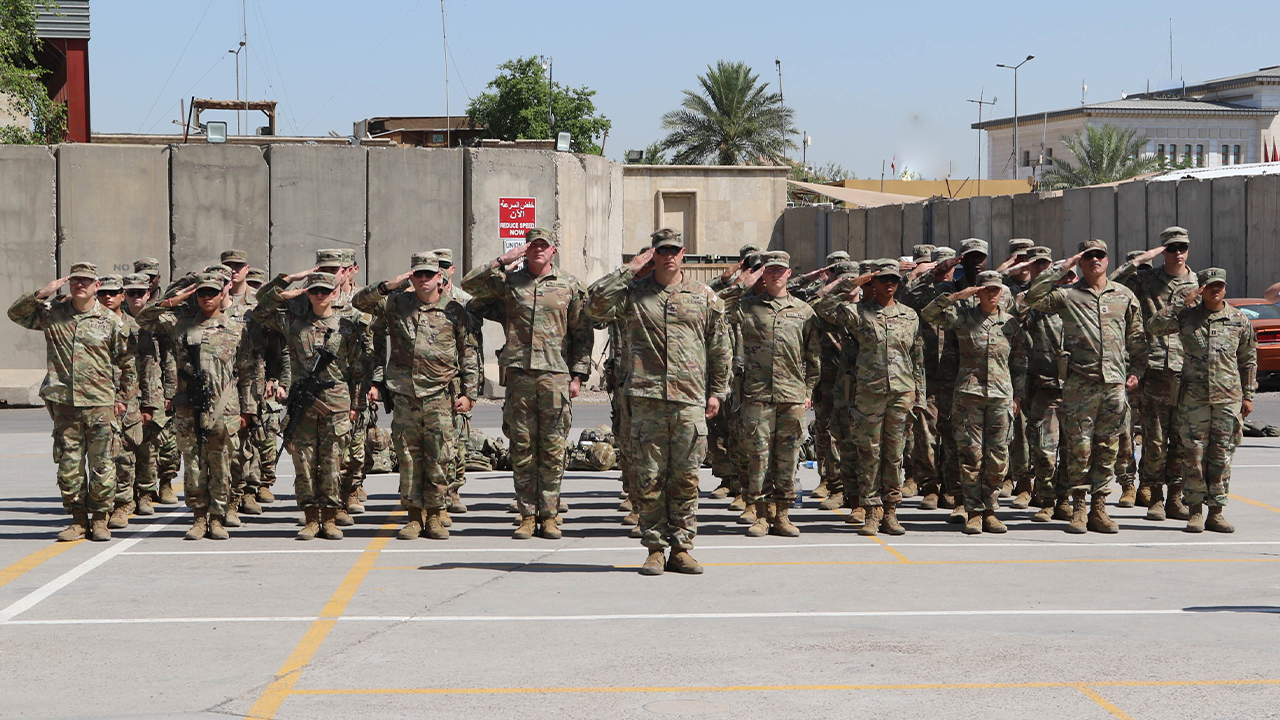
U.S. Military personnel stationed in Baghdad, Iraq held a Memorial Day service Monday to honor the three U.S. Army soldiers who were killed in a drone attack in Jordan earlier this year.
Combined Joint Task Force Operation Inherent Resolve presented the ceremonial wreath at the Memorial Day ceremony at the Union III base, in Baghdad’s Green Zone. Those in attendance paid their respects to the fallen service members.
U.S. Army Maj. Gen. J.B. Vowell, Combined Joint Task Force – Operation Inherent Resolve Commanding General, writes the name of a fallen service member on the Memorial Day wall during a ceremony at Union III in Baghdad, Iraq, May 27, 2024. (U.S. Army)
Staff Sgt. William Rivers, 46, Sgt. Kennedy Sanders, 24, and Sgt. Breonna Moffett, 23, were killed Jan. 28 after a drone attack by an Iranian proxy group hit Tower 22, a small U.S. outpost in northeast Jordan, on the Iraq, Syria, Jordan tri-border, where they were stationed.
BIDEN ADMIN REVERSES COURSE, GRANTS PERMIT FOR CATHOLIC GROUP’S MEMORIAL DAY MASS AT NATIONAL CEMETERY
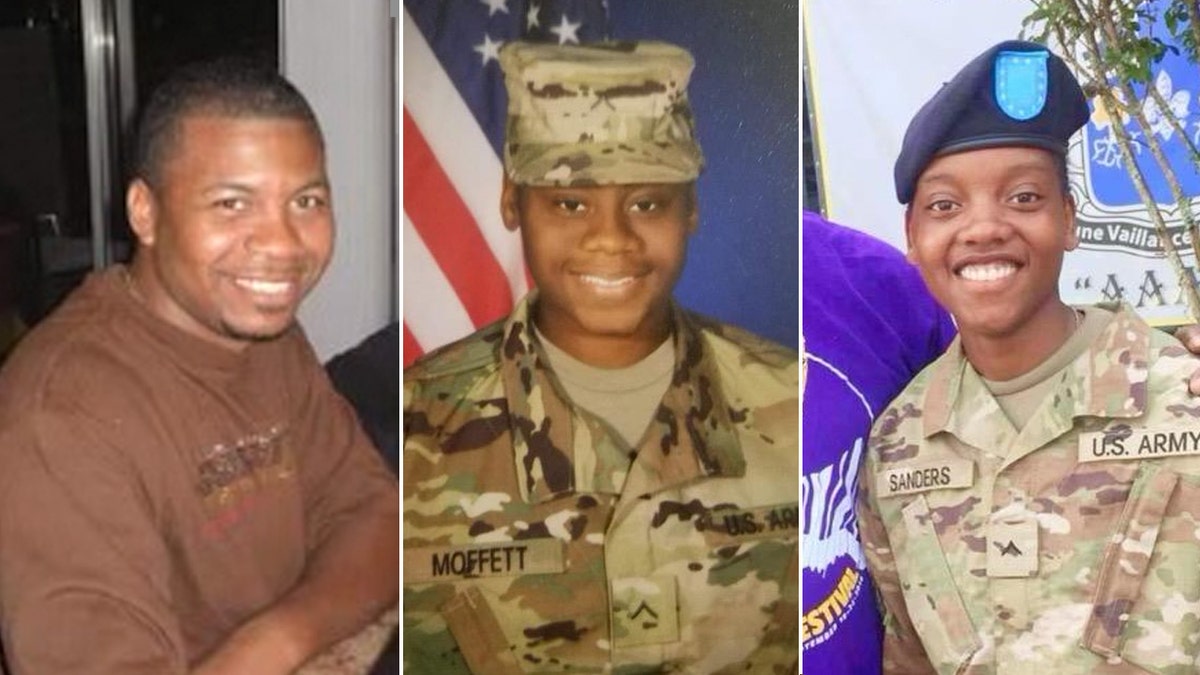
L-R: Sgt. William Rivers, Spc. Breonna Moffett, and Spc. Kennedy Sanders. (Fox News )
The soldiers had been stationed at Tower 22 just across the border from Syria to support the mission to defeat ISIS.
At its height, over 100,000 people lived there, blocked by Jordan from entering into the kingdom at a time when concerns about infiltration by the extremist group were rampant. Those concerns grew out of a 2016 car bomb attack there, that killed seven Jordanian border guards.
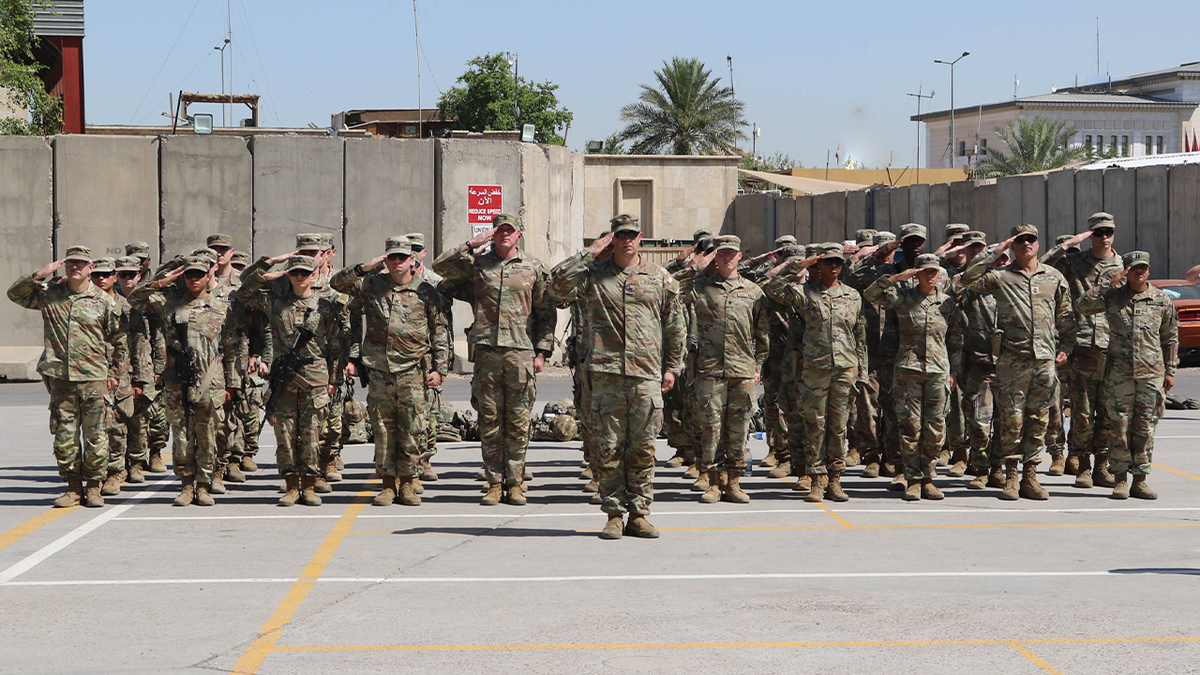
Operation Inherent Resolve soldiers stand in formation and salute the United States flag during a Memorial Day ceremony at Union III in Baghdad, Iraq, May 27, 2024. (U.S. Army)
The camp has dwindled in the time since to some 7,500 people because of a lack of supplies, per United Nations estimates.
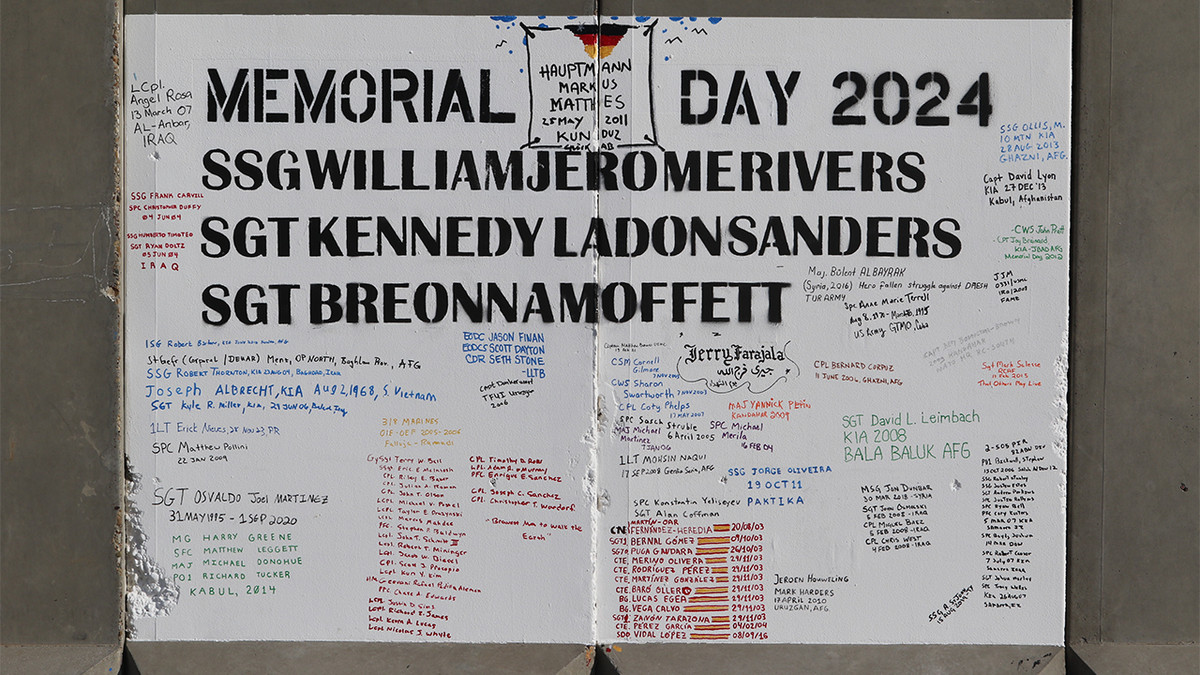
The Memorial Day Wall at Union III in Baghdad, Iraq, May 27, 2024. (U.S. Army)
The base began as a Jordanian border observation outpost, then saw an increased U.S. presence after American forces entered Syria in late 2015. The small installation includes U.S. engineering, aviation, logistics and security troops with about 350 U.S. Army and Air Force personnel deployed there.
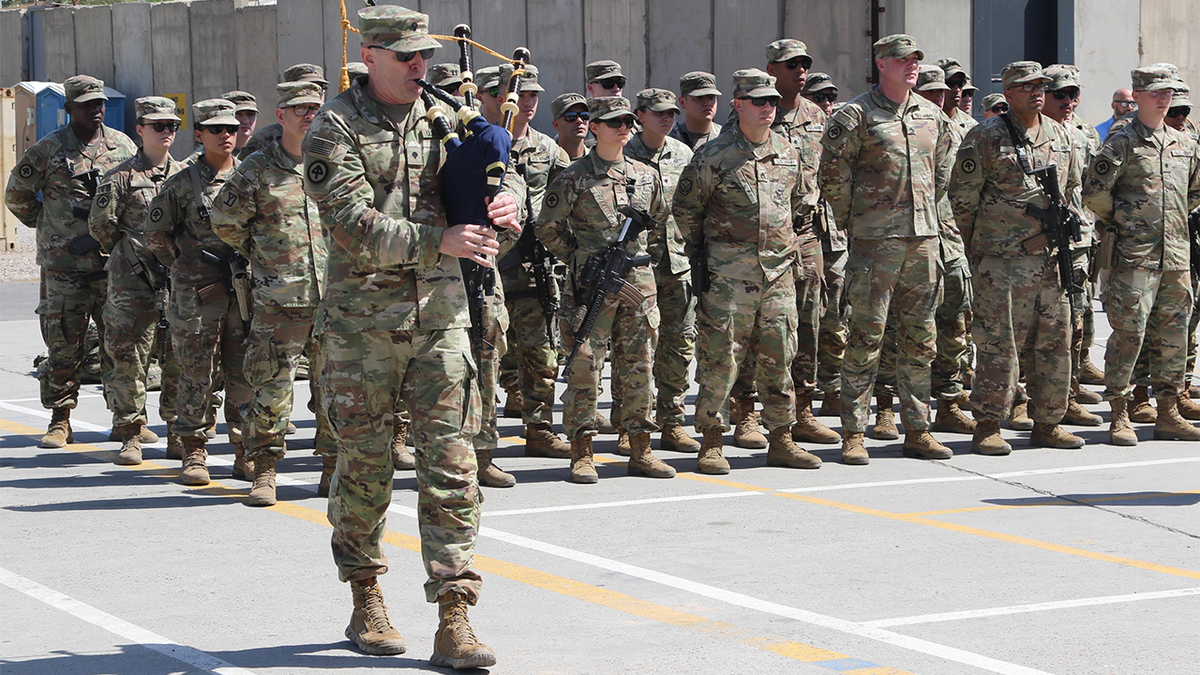
A U.S Army soldier assigned to 1st Battalion, 181st Infantry Regiment, 44th Infantry Brigade Combat Team, New Jersey National Guard, plays Amazing Grace on bagpipes during the Memorial Day ceremony at Union III in Baghdad, Iraq, May 27, 2024. (U.S. Army)
Rivers, Sanders and Moffett were all assigned to the 718th Engineer Company, an Army Reserve unit based in Fort Moore, Georgia, previously known as Fort Benning.
The Associated Press contributed to this report.
World
EU convenes Israel to discuss respect of human rights, ICJ ruling
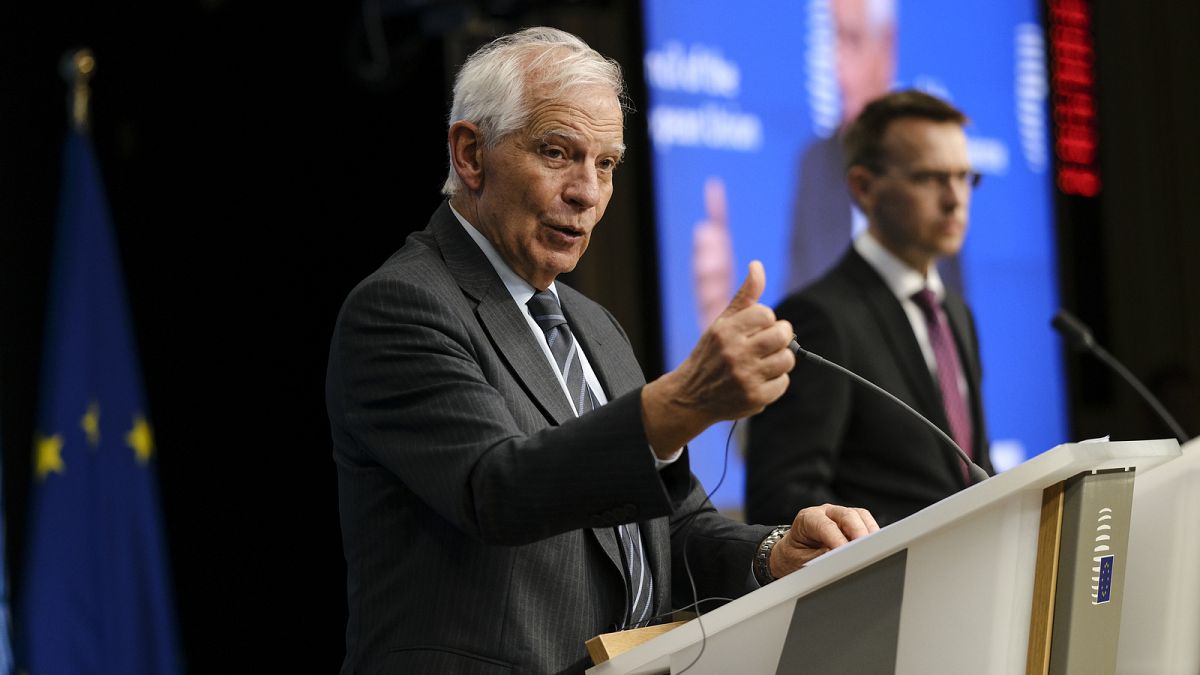
The breakthrough comes three month after Ireland and Spain first pressed on the EU executive to re-open its trade deal with Israel.
European Union foreign ministers unanimously agreed on Monday to call for an Association Council with Israel to discuss the country’s compliance with its human rights obligations under the EU-Israel trade deal, also known as the Association Agreement.
The bloc also intends to use the meeting to confront Netanyahu’s government about its compliance with Friday’s ruling by the International Court of Justice (ICJ), which ordered Israel to halt its intended military offensive in the city of Rafah.
The move comes three months after Spanish Prime Minister Pedro Sánchez and the then Taoiseach Leo Varadkar first made a plea for the urgent review of the EU-Israel Association Agreement, citing serious concerns over Israel’s military campaign in Gaza and potential violations of human rights and international law.
Article 2 of that agreement, struck in 2000, stipulates that the agreement is “based on respect for human rights and democratic principles.”
Europe is Israel’s main trading partner, accounting for just under a third of all commerce, meaning the Agreement is seen as a powerful tool for the bloc to exert pressure on Netanyahu’s war cabinet to refrain from its offensive in the war-torn Gaza Strip.
Despite the firm backing of human rights groups and the UN’s special rapporteur on Palestine, the EU had failed to garner political backing for the move until the breakthrough on Monday.
“We got the necessary unanimity to call for an Association Council with Israel to discuss the situation in Gaza (…) and the respect of human rights under the obligations that Israel has assumed under the Association Council and how they plan to implement the ruling of the court,” Borrell told reporters, referring to Friday’s ruling by the Hague-based court.
“But what we have seen since the court has issued its ruling (is) not the stop of military activities but on the contrary an increase in the military activities, an increase in the bombing and an increase in the casualties to the civilian people, as we have seen last night,” Borrell added.
On Sunday, an Israeli air strike on a camp of displaced Palestinians in the southern Gazan town of Rafah left at least 45 dead, including women and children, prompting global condemnation.
“The last figure seems to be around 40 people, including a small children being burned. I condemn this in the strongest terms. It proves that there is no safe place in Gaza,” Borrell said, describing the images, including those of burnt children, coming out of Rafah as “shocking.”
The IDF has since opened an investigation into the massacre, claiming it was targeting two senior Hamas officials.
EU foreign ministries have harshly criticised the attack, with the German foreign ministry saying the “images of charred bodies” are “unbearable.”
Bloc ups pressure on Israel amid diplomatic spats
Responding to the decision to convene an Association Council, Belgian foreign minister Hadja Lahbib said the move was a “strong signal.”
“We must ensure that our rules and values are respected by all, and above all by our partners like Israel. Our credibility depends on it,” Lahbib, whose government is a staunch supporter of the Palestinians, added.
Other foreign ministers, such as Slovenia’s Tanja Fajon, called for the bloc to go further by slapping sanctions on Israel for its continued violations of international law in its Gaza offensive.
“I strongly condemn Israel’s attack last night on the displaced Palestinians, in which many children were also burned to death,” Fajon, whose government is taking steps to recognise the State of Palestine, said on social media platform X.
“In Brussels (…) today I will stand up for respect for international humanitarian law and decision (of the) ICJ. In case of continuing violations, (the) EU must react uniformly and decisively, including sanctions,” Fajon added.
Borrell declined to comment on whether he believed his Israeli counterparts would agree to attend the Association Council, amid increasing diplomatic tensions with two member states – Ireland and Spain – which announced last Wednesday they would formally recognise the State of Palestine tomorrow, May 28.
A diplomatic row has since erupted, particularly between Israel and Borrell’s native Spain, with Israeli foreign minister Israel Katz issuing a statement Monday morning announcing his government would prohibit Spain from providing consular services to Palestinians in the West Bank.
Katz has also accused Spain’s recognition of Palestine as a “reward for terrorism.”
Borrell described the escalation as “everything but diplomatic.” “This is a completely unjustified and extreme verbal aggression,” he added.
The bloc’s top diplomat also acknowledged there was no unanimous appetite to consider sanctioning Israel for its actions in Gaza but suggested their stance could shift if Netanyahu’s government “continues to ignore” the ICJ’s ruling.
-

 Movie Reviews1 week ago
Movie Reviews1 week ago‘The Substance’ Review: An Excellent Demi Moore Helps Sustain Coralie Fargeat’s Stylish but Redundant Body Horror
-

 Politics1 week ago
Politics1 week agoTrump predicts 'jacked up' Biden at upcoming debates, blasts Bidenomics in battleground speech
-

 World1 week ago
World1 week agoIndia’s biggest election prize: Can the Gandhi family survive Modi?
-

 Finance1 week ago
Finance1 week agoSan Bernardino finance director claims she was fired after raising concerns about costly project
-

 News1 week ago
News1 week agoVideo: A Student Protester Facing Disciplinary Action Has ‘No Regrets’
-

 Movie Reviews1 week ago
Movie Reviews1 week ago‘Blue Sun Palace’ Review: An Intimate, Affecting and Dogma-Free Portrait of Chinese Immigrants in Working-Class New York
-

 Movie Reviews1 week ago
Movie Reviews1 week ago‘Rumours’ Review: Cate Blanchett and Alicia Vikander Play Clueless World Leaders in Guy Maddin’s Very Funny, Truly Silly Dark Comedy
-

 World1 week ago
World1 week agoPanic in Bishkek: Why were Pakistani students attacked in Kyrgyzstan?


